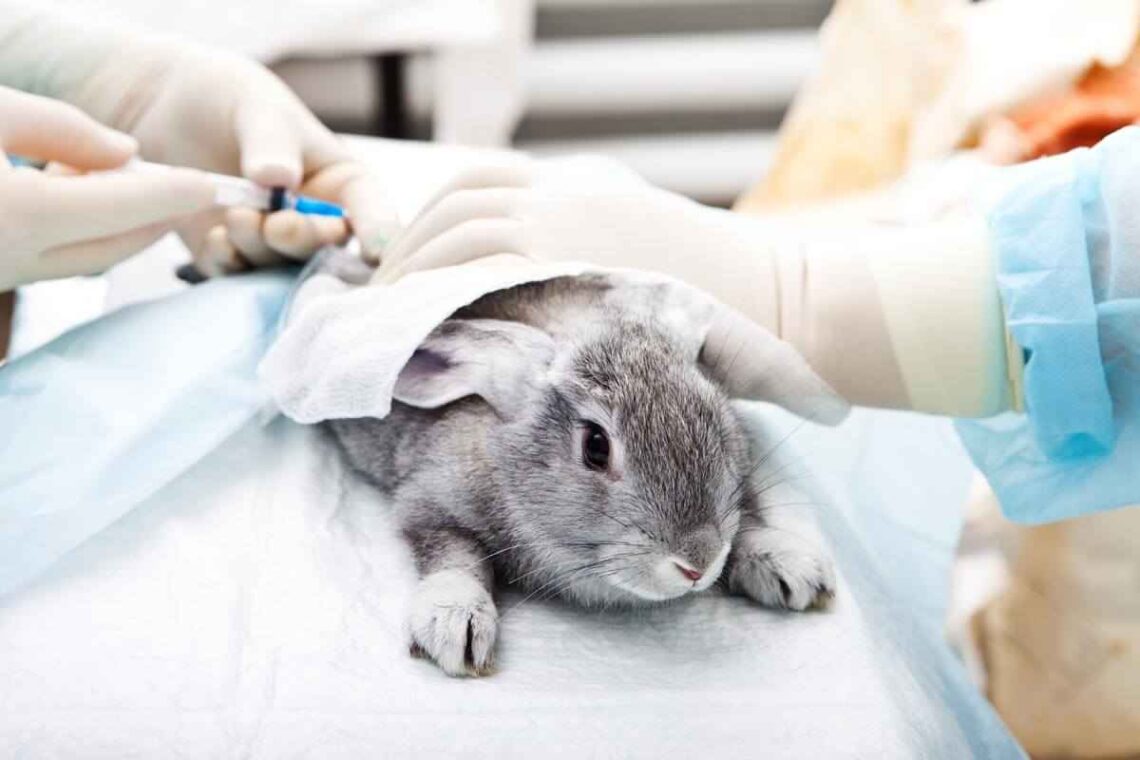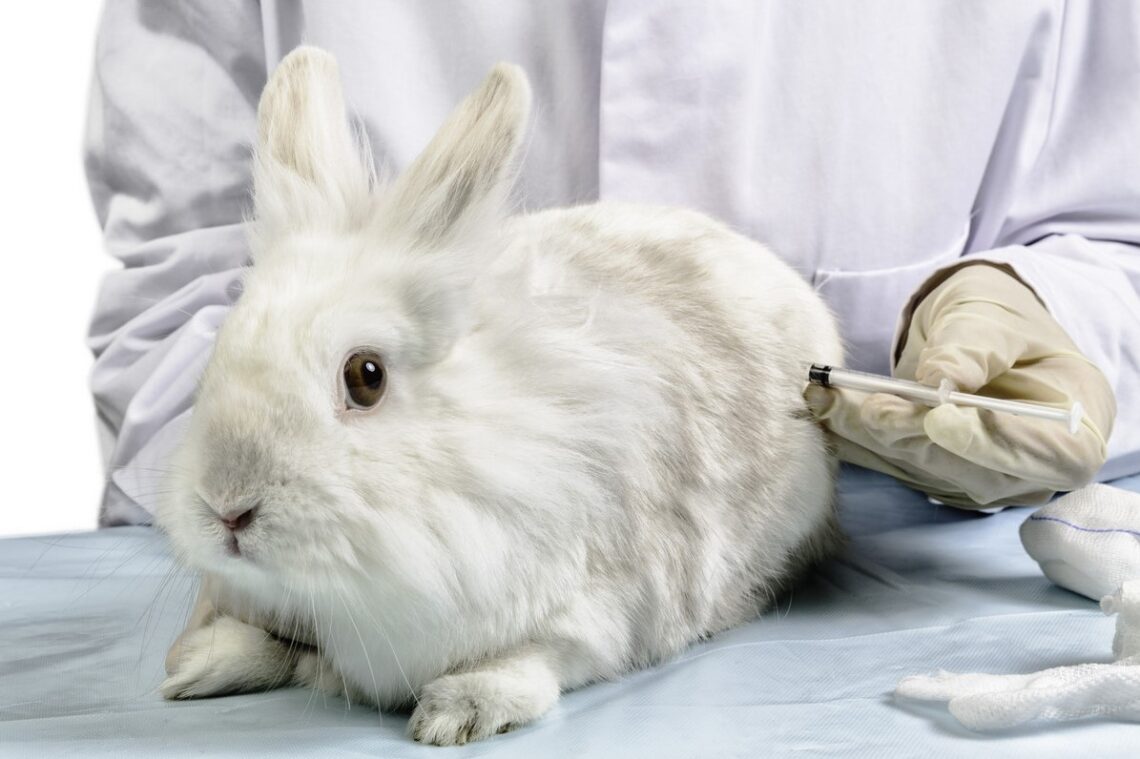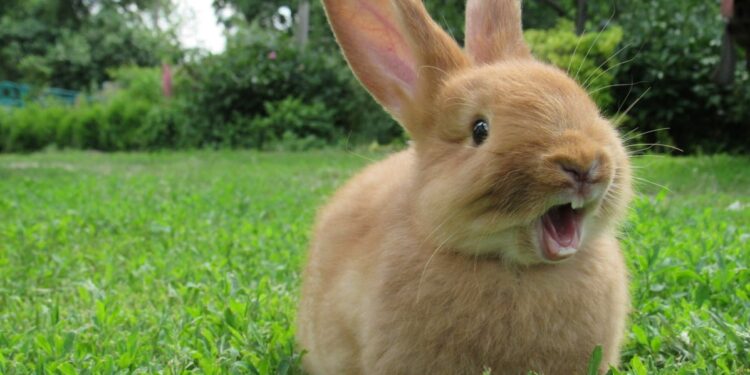Rabbit flu is contagious and is affected by many factors. Rabbits that live in ideal husbandry conditions are affected much less frequently.
Rabbit sniffles are a concern for many rabbit owners. Not without reason, because rabbit cold is contagious and the disease can be fatal.
Here you can find out how to recognize and treat rabbit cold, what to look out for in the event of an infection and how you can prevent it in the future.
What are rabbit snuffles?
In most cases, in addition to the bacteria already mentioned, the rabbits have to deal with several pathogens such as streptococci, Pseudomonas, and viruses.
In addition to the rabbit cold, Pasteurella can also cause so-called rabbit pasteurellosis, which can affect the various organ systems and are therefore very variable in their appearance.
Rabbit cold is contagious due to the transmission path of droplet infection and is often referred to as an epidemic.
causes
A weakened immune system is primarily to blame for rabbits contracting rabbit cold.
It is assumed that most rabbits have already had contact with the pathogens without showing any symptoms of rabbit cold.
How to recognize rabbit flu symptoms
The first signs of rabbit sniffles often go unnoticed by most rabbit owners, especially if the rabbits live exclusively in an outdoor small animal hutch.
Acute infection usually begins with occasional dry sneezing, the general condition of the rabbit is still completely normal at this point.
In the next step, the individual sneezes turn into sneezing attacks and more nasal secretion comes out of the nose. In the beginning, this is watery and only becomes purulent in the advanced stage.
Since the rabbit has difficulty breathing through its blocked nose, it is noticeable that it cleans itself frequently. Owners therefore not only observe a sticky nose but also sticky paws.
A side effect of frequent cleaning is that the rabbits unintentionally bring the pathogens into their eyes and they become infected. Another typical consequence of rabbit colds is ear infections, which are noticeable when the head is tilted.
Often not noticeable from the outside, inflammation of the airways and lungs can develop in rabbits with the first sneezing attacks. As a result, the rabbit becomes weaker and the general condition deteriorates visibly.
Rabbit flu: the treatment

Unfortunately, rabbit sniffles are not to be trifled with. How soon after the outbreak you have the rabbit cold treated has a decisive influence on the course of the disease.
Rabbit sniffles can become chronic or even fatal.
Depending on how severe the rabbit cold symptoms occur, a decision is made as to what the treatment should look like.
This consists of various measures, such as going to the vet, correct feeding and housing as well as inhalation measures.
When a visit to the vet is necessary
At the first signs of a possible rabbit cold, you should consult a veterinarian.
He can treat the rabbit’s cold and give you important tips along the way. Not only because rabbit cold is contagious, but also because of the danger it poses and the stress it puts on your rabbit, you shouldn’t hesitate to go to the vet.
Rabbits only breathe through their noses. If this is clogged with a secretion, breathing is severely disturbed and the level of suffering for your rabbit is very high.
Even with a harmless cold, a visit to the vet can give your rabbit a lot of relief.
If it is actually rabbit cold, the veterinarian can check which organs are affected and take the right measures.
Antibiotic treatment is mandatory in case of infection to treat rabbit cold. If you don’t have any experience with rabbit sniffles, it’s better to visit the vet once too often than not enough.
Even if your rabbit’s cold turns out to be harmless, it’s always better to be safe than sorry.
How you can treat the common cold yourself
In addition to the indispensable visit to the vet, you can support your rabbit in fighting the disease and treat it yourself to a certain extent.
It is important that you optimize your posture. Your rabbit needs plenty of exercises, preferably in a spacious outdoor enclosure. If your rabbit has been living in a rabbit paradise for a long time, you can support your rabbit by feeding various herbs.
There are thyme, sage, buckhorn, peppermint, chamomile, and mallow tea. The herbs can be fed fresh or dry. From time to time some tea can be added to the drinking water.
Treat rabbit cold with inhalation

A favorable factor for dangerous pneumonia is a stuffy nose. Therefore, it is important to help the rabbit get rid of the secretion from the nose to treat the rabbit’s cold.
Inhalation has proven itself to give your rabbit relief. There are two options when inhaling, one consists of an inhalation brew with the herbs already mentioned or simply thyme oil.
The second option is inhalation with sea salt. There are special inhalation masks and devices, alternatively, you can put your rabbit in a transport box or in the rabbit house and put the bowl with the hot water in front of it.
How you can prevent
More than half of all rabbits living in Germany are infected with the responsible pathogen, even if they do not show any typical rabbit cold symptoms.
The disease can only break out if the immune system is weak. In order to prevent your rabbit from developing a weak immune system, species-appropriate husbandry is the be-all and end-all.
Ideal keeping conditions
The ideal housing conditions are made up of a number of factors. This includes a diet adapted to the special needs, which is mainly ensured by fresh grass, hay, and a balanced mixture of fruit and vegetables.
Sufficient exercise and lots of fresh air round off optimal rabbit keeping. In the case of rabbit colds, it is important that the air is kept as dust-free as possible to relieve the airways.
It’s a good idea to just litter the litter box and muck it frequently to reduce ammonia. Wood pellets are suitable as low-dust bedding. The hay should be hot air dried to reduce dust exposure.
Opinions differ on the question of whether keeping a sick rabbit indoors or outdoors is preferable. Without a doubt, sick animals must be kept warm.
A red light lamp in the rabbit hutch is a good way to treat rabbits’ cold when rabbits are kept outside. If rabbits are kept outside, it is essential to ensure that the rabbits are sheltered from the wind and dry.
When kept indoors, it is important that the air is kept moist so that the airways are not irritated.
Read Also: Teddy Dwarf
build the immune system
It never hurts to build up your immune system. However, the remedies mentioned are only to be understood as a supplement and not for the sole control if your rabbit is already ill.
In homeopathy, there are a number of remedies that are very well suited to boosting the immune system. PetMun (PlantaVet) and Echinacea comp. (heels). However, Echinacea must not be given in the case of an acute infection with rabbit cold.
Other remedies are Equinun, Engystol (Heel) and Membrana Nasalium (PlantaVet). The immune system can also be strengthened through nutrition. Some herbs have already been mentioned. In addition to these, oregano, ivy, sage, and thuja are suitable.
vaccination

In addition to the preventive measures mentioned, it is possible to have a rabbit vaccinated against rabbit cold. However, many veterinarians now advise against this vaccination.
Only larger farms and rabbits that take part in exhibitions are vaccinated. The main reason for the refusal to vaccinate is the already mentioned fact that most rabbits are carriers of the bacterium and in the worst case a vaccination can lead to an outbreak of the disease.
Another problem is that not all possible bacteria are covered by vaccination and the rabbit can become infected with rabbit cold despite vaccination.
It is not possible to clarify in advance whether a rabbit is the carrier of the pathogen.




